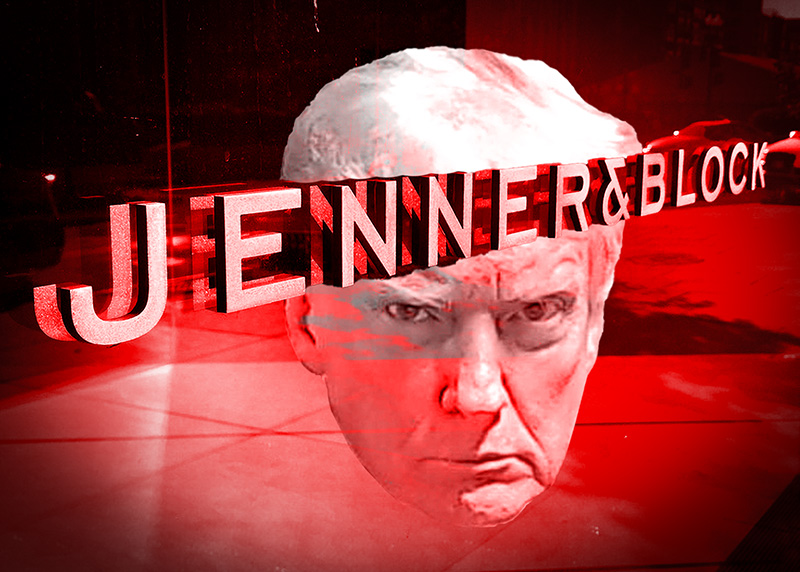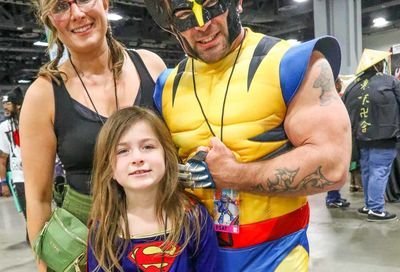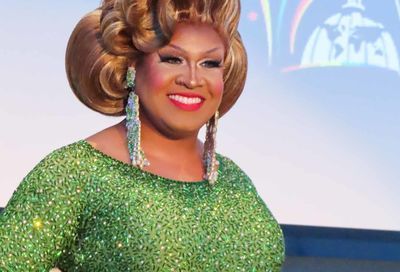“Donald Trump is a clown”: Gay Mexican reaction to Trump’s Mexico trip
Gay Mexicans and Mexican-Americans see Donald Trump as a craven opportunist who will say anything to get elected

“Donald Trump is a clown — a very opportunistic clown,” says Salvador Gonzalez, a 44-year-old gay Mexico City resident. “He cannot be taken seriously.”
Trump is two-faced, always pandering to his audience, and repeatedly contradicts his own statements on certain topics, Gonzalez says. Nowhere is that more obvious than in the GOP presidential candidate’s rhetoric on immigration.
After trailing Hillary Clinton in most polls since the end of July, Trump appeared to be “softening” his previously hard-line stance and suggesting that he might support a path to legalization for some undocumented immigrants. Last week, when he accepted an invitation to meet with Mexican President Enrique Peña Nieto, he was polite, serious, diplomatic. Some might even say “presidential.” He talked of the United States collaborating and developing a working relationship with Mexico for “the mutual good of our people.”
But just hours later, at a campaign rally in Phoenix, Ariz., Trump switched, assumed the role of polemicist-in-chief, wielding the inflammatory and often incendiary rhetoric around immigration and border security that has become a trademark of his campaign. Despite insisting to the press that he and Peña Nieto had not discussed his border wall plan, Trump told the rally that Mexico had agreed to foot the bill. He repeated that claim on Twitter, only to have Peña Nieto tweet in response: “I repeat what I told you personally, Mr. Trump: Mexico will never pay for a wall.”
“I believe Trump uses a lot of circumstances in his favor, and presents distortions and half-truths as the complete truth,” says Gonzalez. “That’s the way that bullies behave. When bullies have the opportunity to show off, they will. And that’s what he does. And the perfect environment for him to show off is in his rallies.”
Similarly to his stance on immigration, Gonzalez believes Trump has obfuscated his position on LGBT rights. While Trump showed some empathy following the deadly mass shooting at Orlando’s Pulse nightclub in June, he waffles when it comes to marriage equality or the right of gay couples to adopt.
“What’s clear to me is that he is associating with people who are completely nuts,” says Gonzalez. “His running mate is the most homophobic type of politician you have in the U.S. He claims to be very Christian, but behaves like a complete bigot toward the LGBT community. Donald Trump is associating with a lot of bigots. That leads me to believe he is also a bigot.”
Yet it was Trump who gained the upper hand in Mexico last week. By inviting Trump to the presidential residence, Peña Nieto gave the reality star-turned-politician the air of legitimacy and granted him the same degree of respect that is normally afforded to heads of state and foreign dignitaries. And given Trump’s inflammatory comments calling Mexican immigrants criminals, drug dealers and rapists, Peña Nieto ensured that Trump would receive wall-to-wall media coverage just by setting foot in a country that he has continually disparaged.
“Honestly, I do not know what the president was thinking, what they expected to gain,” says Carlos Payan-Silva, a 35-year-old gay man from Mexico City. “In this case, there was nothing to win. They got caught in their own little game. I think they didn’t think that Donald Trump was going to accept the invitation, and when he did, it was too little, too late to do anything.”
Payan-Silva says many people in Mexico felt “bamboozled” by the way Trump capitalized on Peña Nieto’s naivete. Following the joint appearance between the two men, the Mexican President was harshly criticized for failing to confront Trump publicly or demand an apology for his insults towards Mexicans. Twitter exploded with calls for Peña Nieto’s resignation. Citizens signed petitions calling for his impeachment. The Mexican Congress began demanding an explanation for why such an invitation was extended to Trump. And Mexican Foreign Relations Secretary Claudia Ruiz Massieu tendered her resignation over objections that she was not consulted about the visit. (She later agreed to stay in office following a tense meeting with the president, according to SDP Noticias.)
“After the press conference, the main feeling [among Mexicans] was one of anger, frustration and impotence,” says Payan-Silva, “because you don’t feel you’re really being represented by the chief executive, that you’re not being defended in front of someone who, for the past year, has really been criticizing and going after your whole country.”
It’s a sentiment shared by Gerardo Guillermo Guerrero, a 39-year-old gay Mexico City resident, who criticizes the president for failing to defend their nation’s reputation in front of Trump.
“If both of them were standing together in this press conference, it was the time to make a statement, and say, ‘We are not going to build a wall, and Mexico is not going to pay for it,’” Guerrero says. “He should have said it out loud in front of the cameras.”
All the press conference did was highlight Peña Nieto’s weakness as a leader, Guerrero says, which is why his approval rating hovers in the low-20s. Even if the intent behind the invitation was to lay the groundwork for smoother diplomatic relations with a possible future president, it simply ended up enabling Trump.
“At first, I thought it was a joke. I couldn’t believe that someone actually thought this was a good idea,” Guerrero says of Trump’s visit. “The point is that even if Trump didn’t appear super strong in front of the cameras during the joint statement, he’s going to be able to go back to the United States and tell everyone ‘I went to Mexico and I told them they will pay for the wall.’”
Both Payan-Silva and Guerrero see Trump as duplicitous when he attempts to pander to LGBT voters while also throwing red meat to cultural conservatives.
“For me, that’s a shady area when it comes to Trump,” says Guerrero. “I had thought he was open to gay rights, and then I read comments from people within his team, making strong statements about being against the LGBT community. I wouldn’t be able to say where he stands.”
“I think Trump on LGBT rights, as with most of his policies, there’s not much substance,” adds Payan-Silva. “He can say one thing to one group, and then at the next press conference, he’ll say another thing. He goes back and forth between being a social conservative to being a Libertarian. There’s nothing to really grasp in that area.”
That’s a sentiment that crosses borders.
“I don’t believe anything that comes out of [Trump’s] mouth,” says Fernando Garcia, a 49-year-old resident of the District of Columbia. “He’s just a big liar.”
For Garcia, born in the United States to parents of Mexican heritage, Trump’s rhetoric around immigration is highly concerning. Garcia is particularly incensed by Trump’s contention — made last year during the Republican primary — that babies born in the United States to undocumented immigrants are not American citizens, even though the Fourteenth Amendment says otherwise.
“How does that make me feel?” he asks. “Infuriated. Not a person. Not an American. Devalued. I guess, at the end of the day, it’s just unbelievable.”
Garcia marvels in disbelief at how Trump came to be the Republican nominee, due in part to his incendiary and divisive rhetoric and appeals to bigotry.
“Heaven forbid that he does get elected,” Garcia says. “America is going to be at a huge standstill. He’s going to create enemies of every country. He’s going to create enemies of all of the U.S. citizens. He’s going to introduce bigotry at a major level, where America is going to go back 50, 100 years.”
Garcia, who married his partner of 15 years in 2011, sees Trump as dishonest when it comes to LGBT rights as well.
“I seriously doubt he can define what LGBTQ means,” he says. “In one of the speeches he gave, he said ‘L-G-B-T-Q’ with a pause between each letter, because he had to read it from a teleprompter to make sure he wasn’t going to mess up. That right there makes him lose all credibility, or what little he had. I don’t think he’s an equal rights supporter.”
Asked about the prospect that Trump — the first GOP presidential candidate to publicly court the votes of LGBT people — may receive a higher percentage of support than any previous nominee, Garcia remains skeptical.
“He’s not getting my support. I don’t know who these people are,” he says. “And if there’s such a huge percentage of LGBT people who are going to be voting for him, they need to evaluate themselves.”
Support Metro Weekly’s Journalism
These are challenging times for news organizations. And yet it’s crucial we stay active and provide vital resources and information to both our local readers and the world. So won’t you please take a moment and consider supporting Metro Weekly with a membership? For as little as $5 a month, you can help ensure Metro Weekly magazine and MetroWeekly.com remain free, viable resources as we provide the best, most diverse, culturally-resonant LGBTQ coverage in both the D.C. region and around the world. Memberships come with exclusive perks and discounts, your own personal digital delivery of each week’s magazine (and an archive), access to our Member's Lounge when it launches this fall, and exclusive members-only items like Metro Weekly Membership Mugs and Tote Bags! Check out all our membership levels here and please join us today!



























You must be logged in to post a comment.